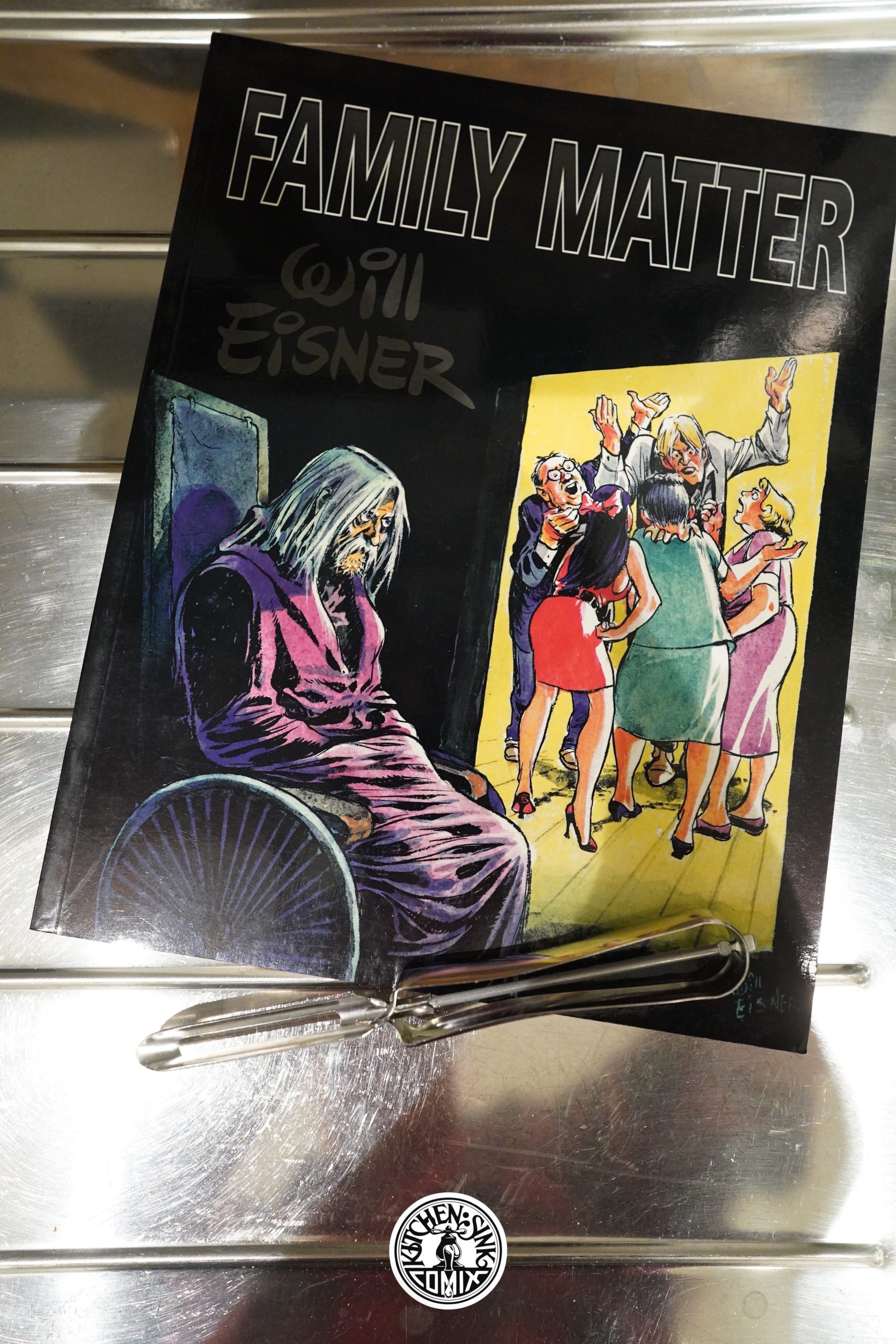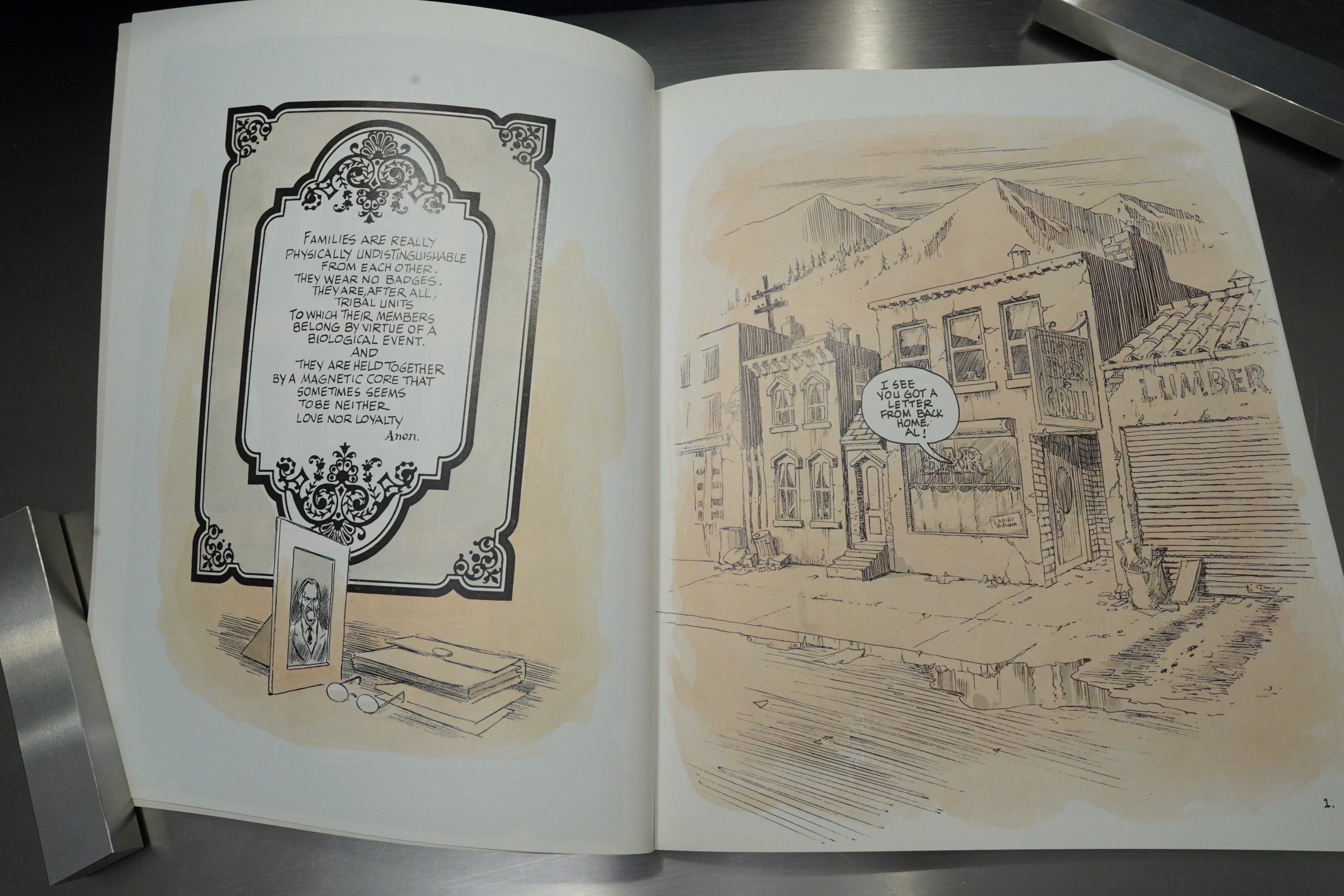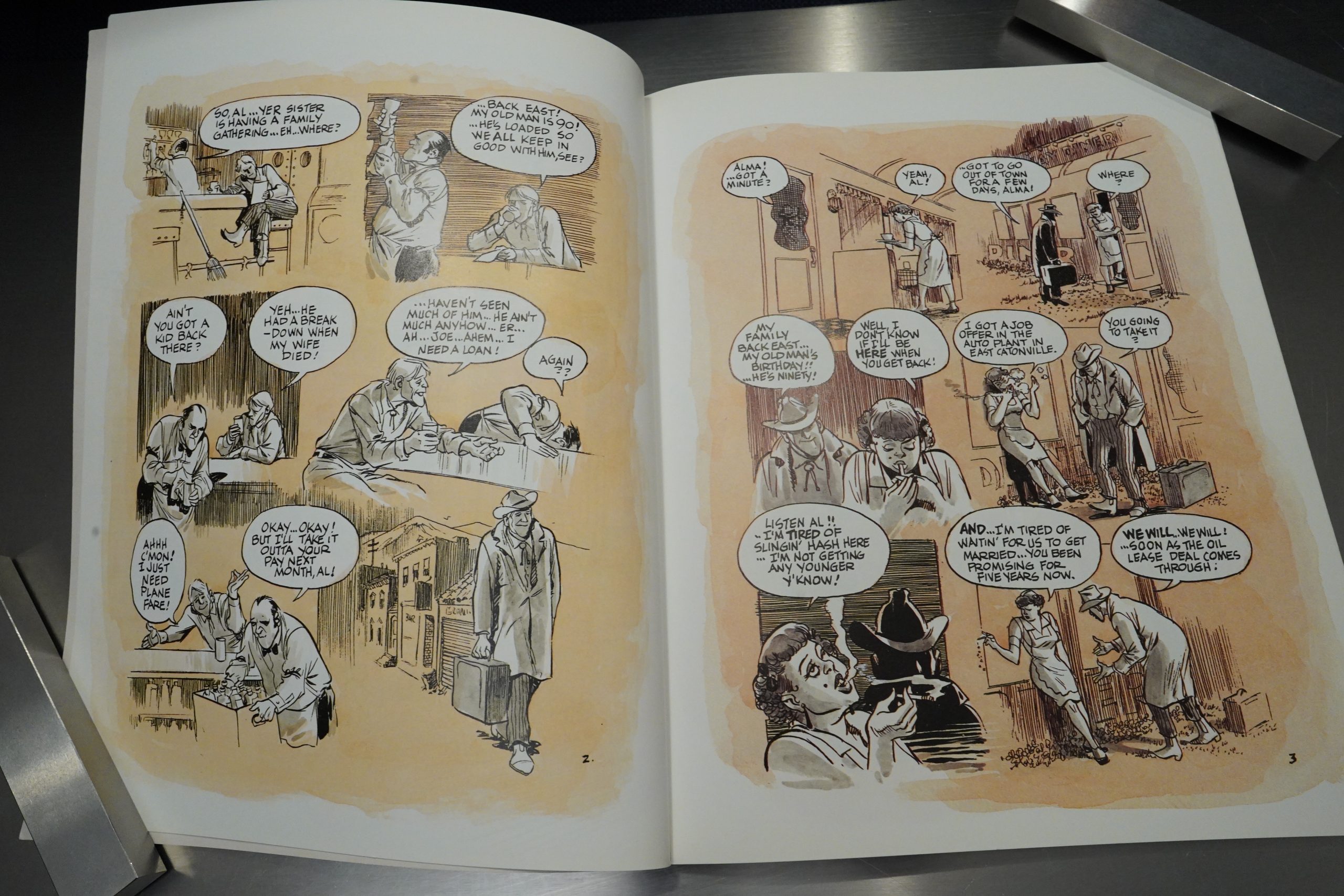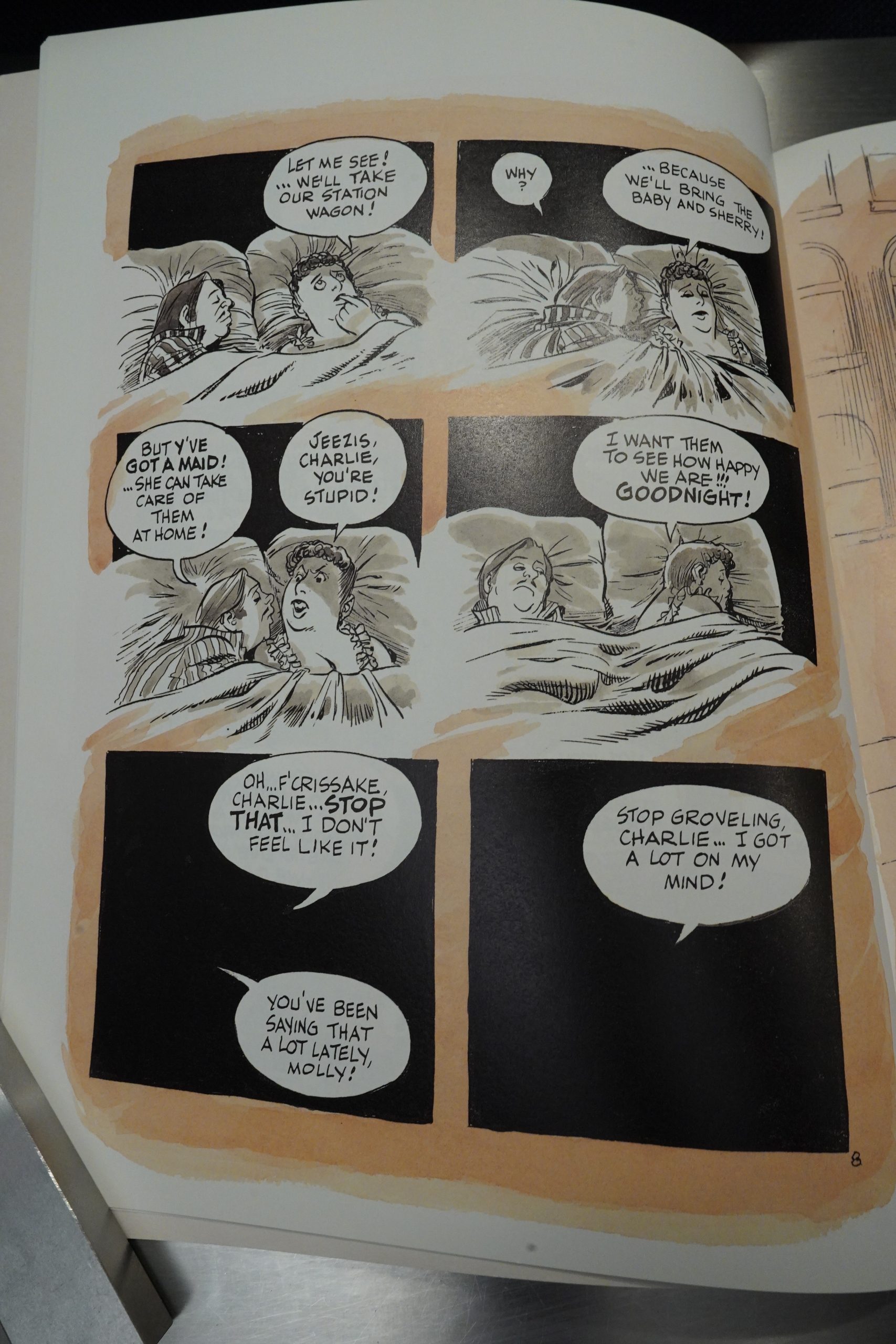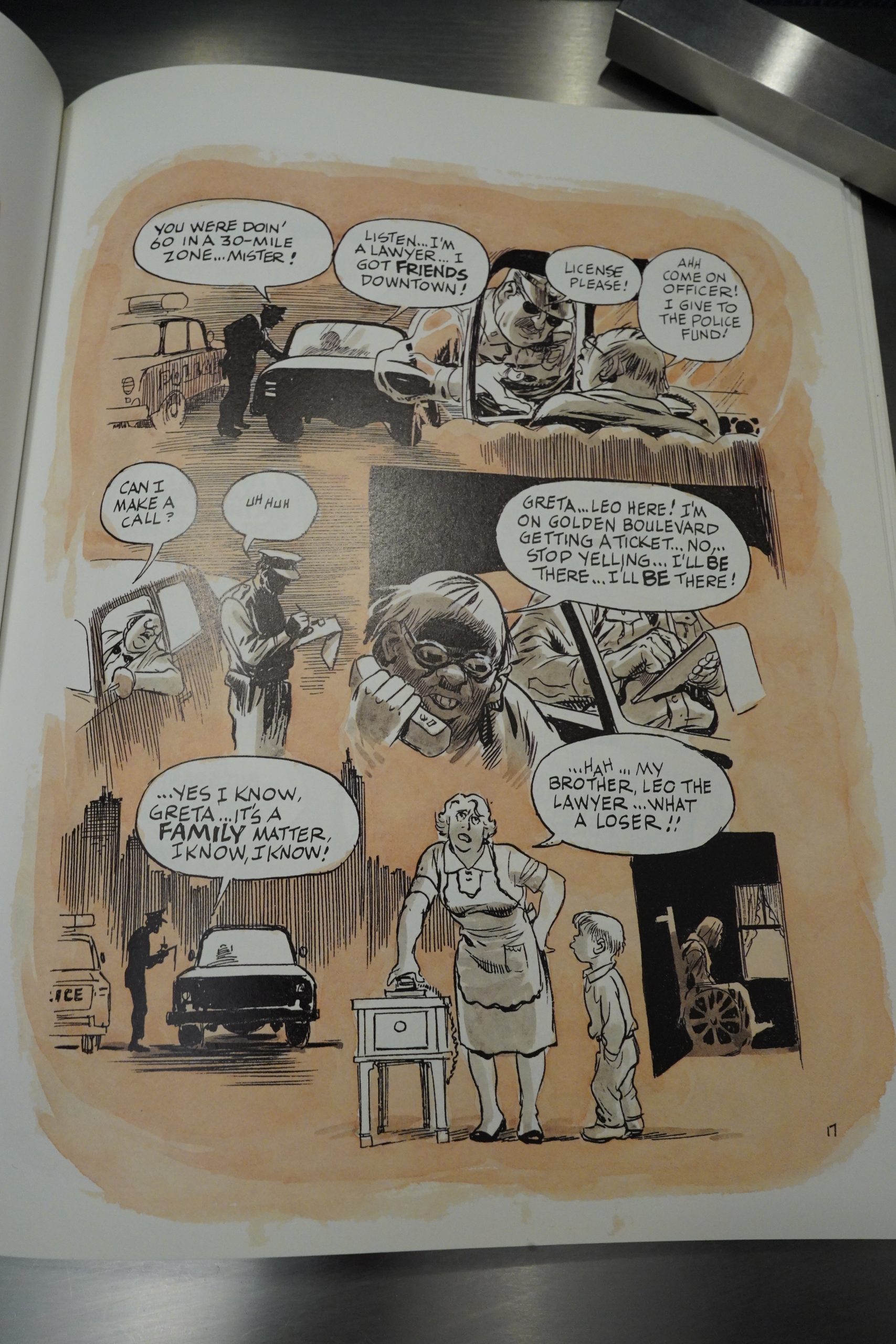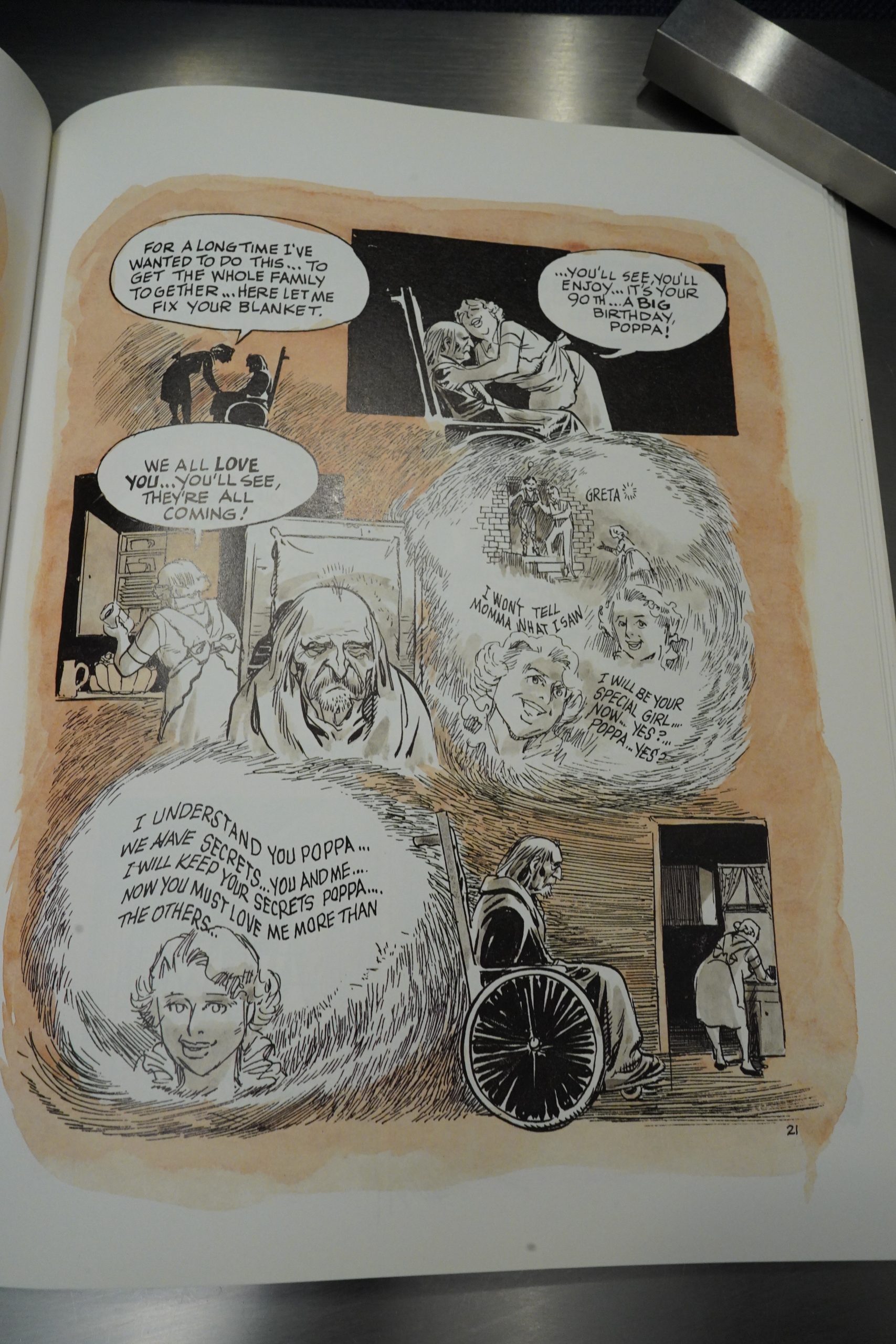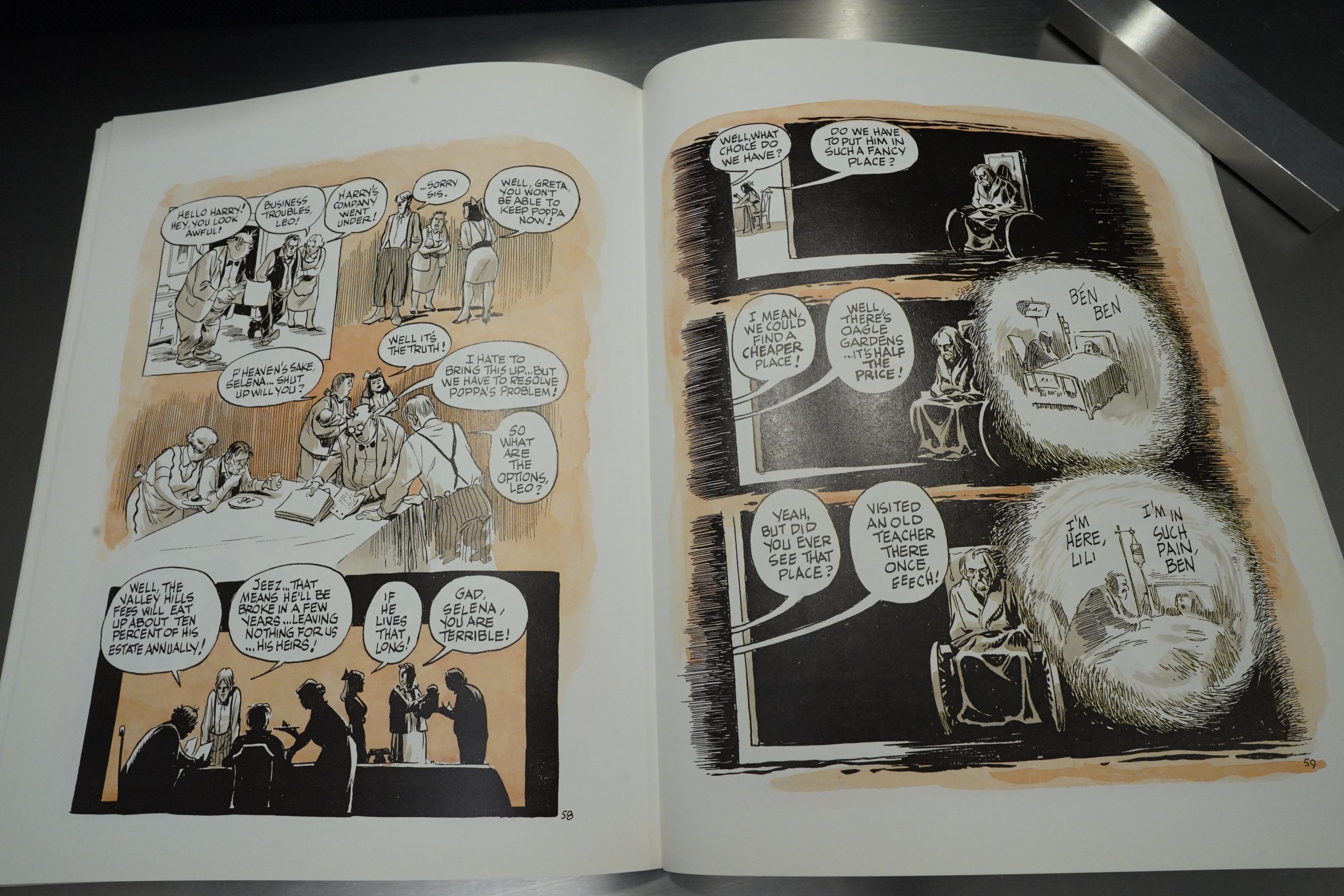Family Matter (1998) by Will Eisner
The final iteration of Kitchen Sink is quite a lot like the first one (editorially speaking), so what’s more natural than a new Will Eisner graphic novel?
This is in a slightly unusual format for Eisner — I mean, it uses a restricted colour palette, which was becoming popular at the time.
As usual with Eisner, he introduces more characters than you would think would be necessary.
And he assigns each one with a somewhat distinct personality very efficiently. Sometimes it’s so sketched in that it feels parodic.
And since the name of the book is “Family Matter”, he has the characters repeat the phrase a couple times or more, just so that we get what the theme of the book is.
His artwork is still as fluid as ever… he mostly eschews panels with borders, but lets the pages flow like this. It’s nice — the storytelling is so super duper clear that anybody can follow it, anyway.
So I was thinking that Eisner was going one way with this (that’s a slightly creepy memory, right), but then he sabotaged that thoroughly with a later memory, and then the book was running out of pages and I was thinking “is he just going to end this with no er ending?”…
… but no! It has a shocking and affecting ending (not shown above, because I don’t want to spoil anything). It’s a brave graphic novel, really, and pretty much avoids Eisner’s O. Henry-like twist endings for… a different kind of twist ending.
It’s great!
The book is a brisk read, and I can understand people who got annoyed with the bickering and the somewhat cardboardish characters, but the ending justified it all.
RC Harvey writes in The Comics Journal #212, page 108:
Eisner introduces each member of
the patnarch’s family one-by-one. We
learn of their various circumstances (the
sexy daughter lives With a drunk; another
daughter married well and has become a
social-climber. one son is a dissolute fail-
ure, another a lawyer) and their motives
for attending the birthday celebration.
Mostly, they hope to inherit the Old man’s
wealth when he dies.[…]
It’s a depressing milieu. And the
occasion for their getting together, while
supposedly a happy one, is made equally
depressing by the selfishness of the family
members. Still, Eisner makes us care
about them.[…]
The task of developing this cast of
characters. of creating moments that will
reveal their distinct personalities — and
doing it visually as Well as verbally — is
painstaking, exacting work. The trick, as
Eisner told me last winter when I visited
him as he was putting the final touches on
the book, is to choose the right moments
to depict, and then to depict them in a way
that reveals the aspect ofpersonality that is
integral to the story.
“An author Who works With words,”
Eisner “can easily say in his text, ‘He
regarded himself still as a superior model. ‘
But how do you show that With images —
images alone? There’s no formula I can
advance. But human emotion is not
necessarily expressed only in faces. Emo—
tions are displayed by body posture and
gesture, too. In FamilyMatter, I spentalot
of time on posture.”
Frank Miller is interviewed in The Comics Journal #209, page 88:
Have you seen Family Matter?
GROTH: No, I haven’t.
MILLER: very strong. Very concise, very potent.
GROTH: No, lintend to read it, butlhaven ‘tgotten around
to it yet.
MILLER: Eisner manages to draw the characters — by
draw, I mean with the dialogue as much as anything
else — so cleanly that you don’t flip back to find out
who’s talkingatanypoint. Up toa very strongpunchline.
A very strong conclusion.
GROTH: Doyou think this is strongerthan many ofbis other
graphic novels? One of his best?
MILLER: This is probably my favorite from him. In
terms of the clarity of the narrative. also him at his
nastiest, which I enjoy.
GROTH: Really?
MILLER: In his own way, yeah.
Like most of Will Eisner’s work, A Family Matter is a complex brew, beautifully rendered. It is an absolute gem, one of the great master’s late masterpieces.
Like many of the tenement stories, A Family Matter is a melodrama, and it carries every burden that implies, occasionally bending under the weight of a storyline that can feel overwrought and dialogue that is frequently simplistic.
This is the two hundred and eleventh post in the Entire Kitchen Sink blog series.

